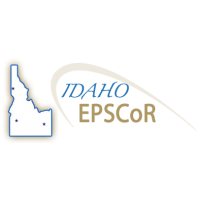While phosphorus is an essential nutrient for life and largely drives crop yields in our agricultural and food systems, its inefficient management is resulting in water pollution and ecological damage. Sustainable solutions to manage phosphorus in agricultural production and society will require interdisciplinary approaches. Such interdisciplinary approaches will need to rely on effective means to communicate and collaborate with a range of stakeholders in order to ensure that new technologies and management solutions address stakeholder needs and wants and can ultimately be adopted. A new NSF-funded Science and Technologies for Phosphorus Sustainability, or STEPS, Center is guided by a long-term vision of a 25% reduction in mined phosphates, and 25% reduction in phosphorus losses to soils and water, within a 25 year time span. To realize this vision, the Center includes a stakeholder engagement component to interact with and engage external stakeholders through formalized processes, including collaborative efforts between STEPS researchers and stakeholders to develop and co-create solutions to improve phosphorus sustainability. These solutions will ultimately reduce our dependence on mined phosphates, through improved efficiencies to better utilize and reuse phosphorus from wastes, as well as reduce phosphorus losses to the environment through the development of new materials and technologies to create more sustainable systems.
Resource Use:
License: CC-BY
Recommended Citation: Grieger, K. (2022). Engaging stakeholders in sustainable phosphorus management. University of Idaho. https://doi.org/10.7923/DW3H-V405
Data and Resources
| Field | Value |
|---|---|
| Modified | 2022-05-19 |
| Release Date | 2022-05-19 |
| Publisher | |
| Homepage URL | |
| Identifier | 25af3b5d-d31c-4447-85e5-8e8d55373755 |
| Spatial / Geographical Coverage Location | USA |
| Temporal Coverage | Friday, September 30, 2016 - 00:00 to Friday, October 1, 2021 - 00:00 |
| Language | English (United States) |
| License | |
| Author | |
| Contact Name | Khara Grieger |
| Contact Email | |
| Public Access Level | Public |
| DOI | 10.7923/DW3H-V405 |


![[Open Data]](https://assets.okfn.org/images/ok_buttons/od_80x15_blue.png)